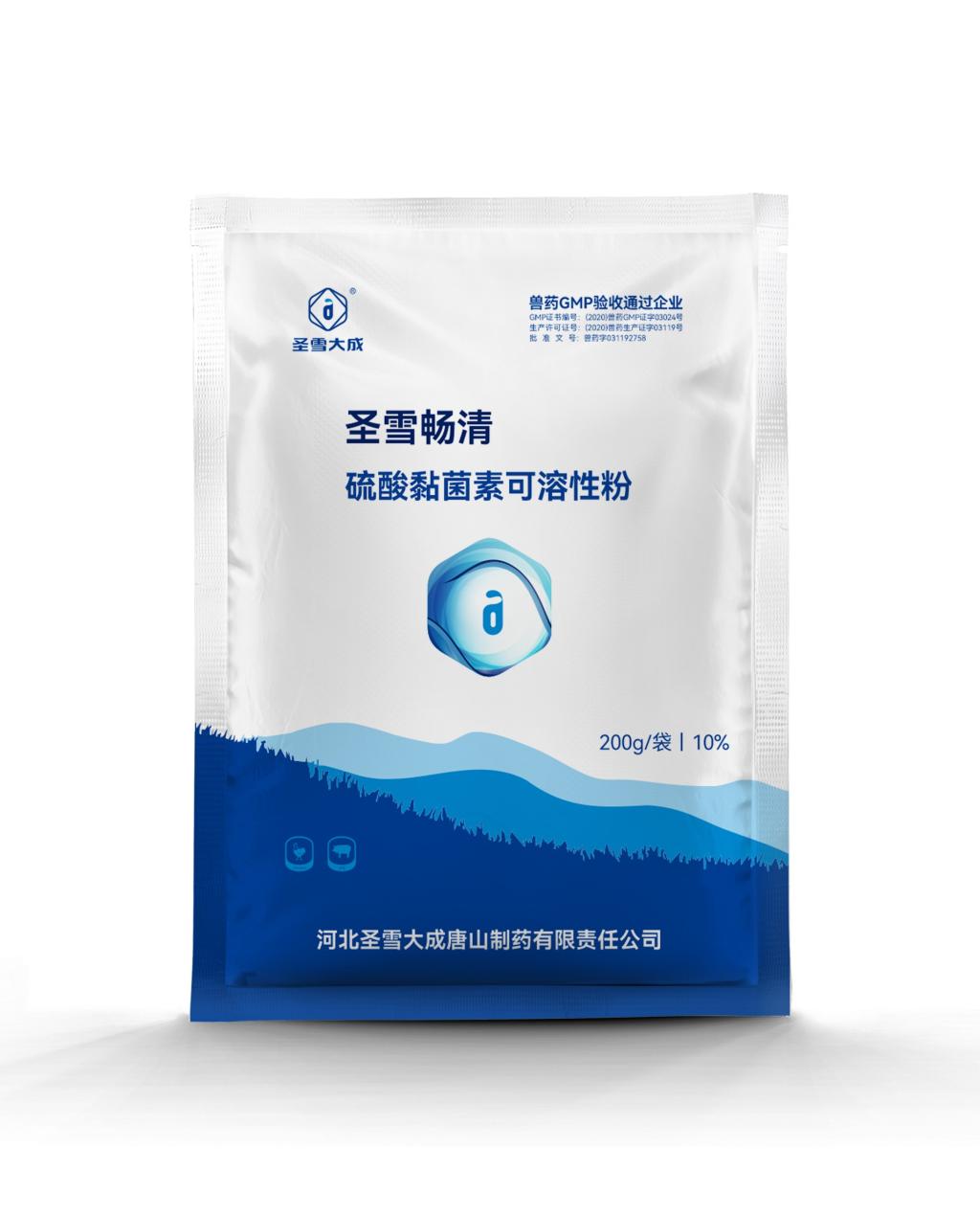Tel:0086 18231198596

News
Current Position:
Home >
News
>Exploring Risks and Benefits of Colistin Sulfate Soluble Powder in Animals.
Exploring Risks and Benefits of Colistin Sulfate Soluble Powder in Animals.
TIME:2023-12-28
I. Historical Context and Usage:
A. Emergence of Colistin:
Colistin, a polymyxin antibiotic, was first isolated in the 1940s and gained prominence for its efficacy against Gram-negative bacteria. Initially used in human medicine, it was later adapted for veterinary use to combat bacterial infections in animals.
B. Veterinary Applications:
Colistin sulfate, the salt form of colistin, is formulated as a soluble powder for administration to animals, particularly poultry, swine, and cattle. Its broad-spectrum antibacterial activity, especially against Enterobacteriaceae, made it a valuable tool for controlling bacterial infections in livestock.
II. Benefits of Colistin Sulfate in Animal Health:
A. Treatment of Bacterial Infections:
Colistin sulfate plays a crucial role in veterinary medicine by effectively treating bacterial infections in animals. It is commonly used to combat diseases caused by bacteria such as Escherichia coli, Salmonella, and Pasteurella, which can afflict livestock and impact both animal welfare and productivity.
B. Growth Promotion:
Historically, colistin sulfate has been employed as a growth-promoting agent in livestock farming. Subtherapeutic doses of antibiotics, including colistin, were believed to enhance feed efficiency and growth rates in animals. However, the use of antibiotics for growth promotion has faced scrutiny due to concerns about the development of antibiotic resistance.
III. Antibiotic Resistance Concerns:
A. Emergence of Resistant Strains:
One of the primary concerns associated with the use of colistin sulfate in animals is the emergence of antibiotic-resistant strains of bacteria. Overuse and misuse of antibiotics in veterinary medicine contribute to the development of resistant bacteria, which can pose a significant threat to both animal and human health.
B. Transmission to Humans:
The potential transmission of antibiotic-resistant bacteria from animals to humans through the food chain or direct contact is a major public health concern. Colistin is considered a last-resort antibiotic for certain human infections, and the emergence of resistance to this drug jeopardizes its effectiveness in treating severe bacterial infections in humans.
IV. Regulatory Measures and Restrictions:
A. Global Initiatives:
In response to the rising concerns about antibiotic resistance, various countries and international organizations have implemented regulatory measures to restrict the use of colistin in animals. Some have banned its use for growth promotion, while others have introduced guidelines to ensure responsible use, emphasizing the importance of veterinary oversight.
B. European Union Ban:
The European Union, in recognition of the public health risks associated with colistin use, implemented a ban on the use of colistin as a growth promoter in animal feed in 2006. This was a significant regulatory step aimed at curbing the development and spread of antibiotic-resistant bacteria.
V. Alternatives and Sustainable Practices:
A. Antimicrobial Alternatives:
As the risks associated with colistin sulfate use become more apparent, there is a growing emphasis on exploring alternatives. Probiotics, prebiotics, phytogenics, and other natural products are being investigated as potential replacements for antibiotics in animal agriculture, with the aim of promoting animal health without contributing to antibiotic resistance.
B. Sustainable Livestock Practices:
Implementing sustainable livestock practices, such as improved hygiene, biosecurity measures, and vaccination programs, is essential for reducing the reliance on antibiotics in animal farming. These practices contribute to preventing the spread of infections and minimizing the need for therapeutic interventions.
VI. Balancing Animal Health and Public Health:
A. Responsible Antibiotic Use:
A crucial aspect of addressing the risks associated with colistin sulfate is the promotion of responsible antibiotic use in animals. This involves careful consideration of the dosage, duration, and necessity of antibiotic treatments, with the overarching goal of preserving the efficacy of antibiotics for both veterinary and human medicine.
B. Surveillance and Monitoring:
Enhanced surveillance and monitoring of antibiotic use in animals, as well as the prevalence of antibiotic-resistant bacteria, are essential components of a comprehensive strategy to mitigate the risks. Regular assessments can inform regulatory decisions and guide the development of evidence-based policies.
VII. Future Directions and Research Needs:
A. Research on Alternatives:
Continued research on viable alternatives to colistin sulfate is imperative for the sustainable development of animal agriculture. Understanding the efficacy, safety, and practicality of alternative antimicrobial agents will contribute to the evolution of responsible and effective animal health management.
B. Global Collaboration:
Addressing the complex issue of antibiotic resistance requires global collaboration among researchers, veterinarians, policymakers, and industry stakeholders. Sharing knowledge, best practices, and research findings on an international scale can foster the development of harmonized approaches to antibiotic use in animals.
Conclusion:
In the ongoing discourse surrounding colistin sulfate soluble powder in animal use, a delicate balance must be struck between ensuring animal health, safeguarding public health, and addressing the global challenge of antibiotic resistance. The benefits of colistin sulfate in treating bacterial infections in animals are undeniable, but the emergence of resistant strains poses a significant threat. Responsible antibiotic use, regulatory measures, exploration of alternatives, and global collaboration are crucial components of a comprehensive strategy to navigate the complexities of antimicrobial use in animal agriculture, ensuring a sustainable and health-conscious future for both animals and humans alike.

 CONTACT
CONTACT




